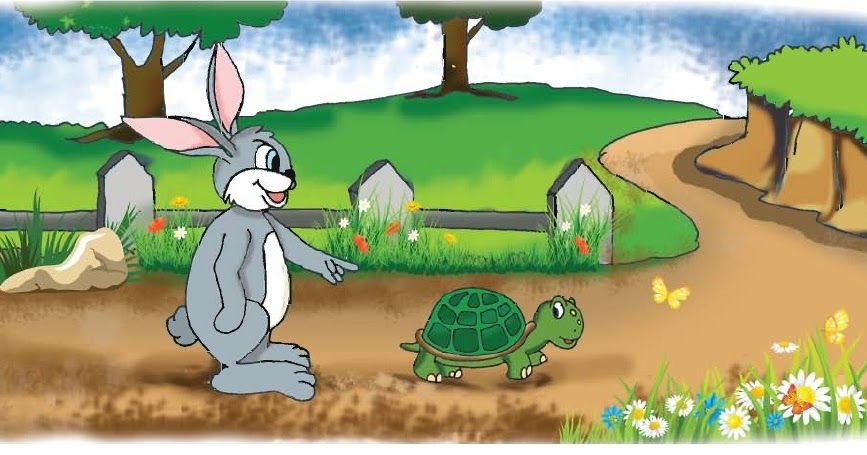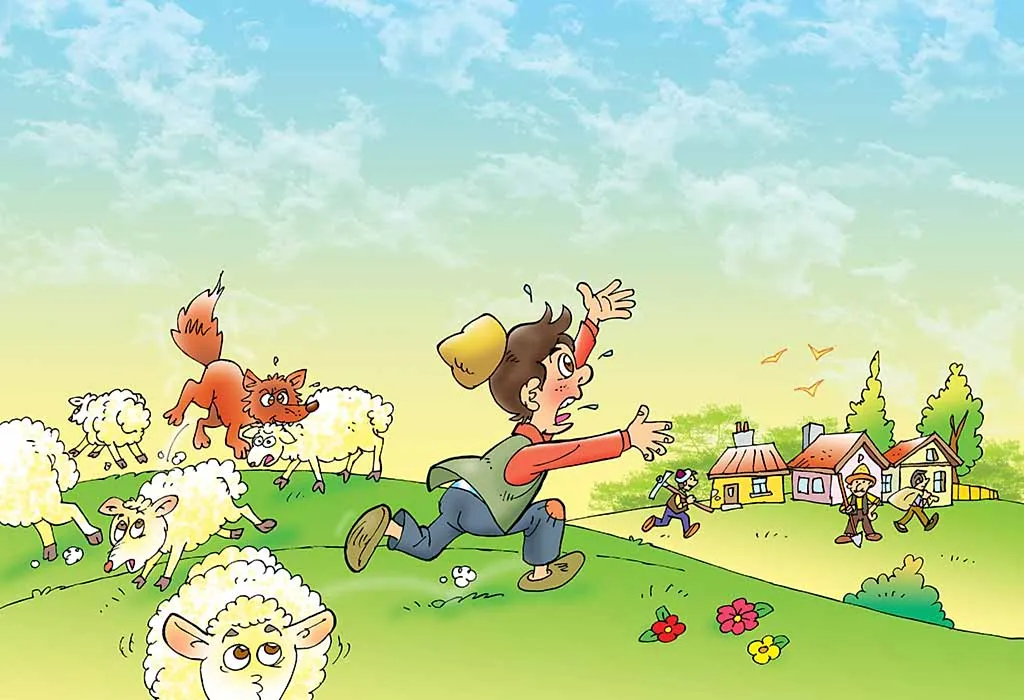Top 7 Short Moral Stories For Kids

Top 7 Short Moral Stories For Kids
Moral stories are an integral part of a child’s development as they provide valuable life lessons and teach important principles. Through engaging narratives, these stories entertain children while imparting moral values, character traits, and wisdom. Whether it’s learning about honesty, kindness, perseverance, or the consequences of one’s actions, moral stories have the power to shape children’s understanding of the world around them. In this article, we present a selection of the top 20 short moral stories for kids. These stories are not only enjoyable to read but also serve as powerful tools for teaching essential values that can guide children to become compassionate, responsible, and virtuous individuals.
1. Introduction to Moral Stories for Kids
Kids love stories. Whether it’s a fairy tale or an adventure in a magical land, stories have a way of captivating their imaginations. But what if these stories could also teach them valuable lessons about life? That’s where moral stories come in. These short tales are not only entertaining, but they also impart important messages and teach children about values, morals, and ethics. Moral stories have been passed down through generations, and they continue to be a powerful tool in shaping young minds.
Why are moral stories important for kids?
Moral stories serve as a guide for children, teaching them valuable lessons that they can carry with them throughout their lives. These stories help develop their understanding of right and wrong, empathy, kindness, and other crucial qualities. Through the characters and situations in moral stories, children can learn to make wise choices, understand the consequences of their actions, and develop their moral compass.
2. The Tortoise and the Hare
Summary of the story
In this classic fable, a proud and boastful hare challenges a slow yet determined tortoise to a race. Confident in his speed, the hare takes off swiftly, leaving the tortoise far behind. However, halfway through the race, the hare decides to take a nap, believing he has plenty of time to catch up. Meanwhile, the tortoise continues at a steady pace, eventually crossing the finish line before the hare wakes up.
The moral lesson behind the story
“The Tortoise and the Hare” teaches us that slow and steady wins the race. It emphasizes the importance of perseverance, consistency, and not underestimating others based on their appearance or abilities. It reminds children that hard work and determination can often lead to greater success than relying solely on talent or natural abilities.

3. The Lion and the Mouse
Summary of the story
In this heartwarming tale, a mighty lion is caught in a hunter’s net. Helpless and trapped, he roars in frustration. Hearing the lion’s cries, a little mouse comes to his aid. The mouse gnaws at the net’s ropes until the lion is freed. The once-scornful lion realizes that even the smallest acts of kindness can be significant.
The moral lesson behind the story
“The Lion and the Mouse” teaches us the importance of compassion, empathy, and helping others. It showcases that no act of kindness is too small and that we should never underestimate the power of lending a helping hand. The story encourages children to treat everyone, regardless of their size or appearance, with kindness and respect.
So, gather your little ones around and share these timeless moral stories that will entertain and enlighten them, while imparting valuable life lessons. After all, why settle for just entertainment when you can also shape young minds?

4. The Ant and the Grasshopper
Summary of the story
Once upon a time, there was a very hardworking ant and a very lazy grasshopper. The ant spent all summer collecting food and building its little ant hill, while the grasshopper just hopped around, enjoying the sunshine and singing. When winter came, the ant had plenty of food stored, but the grasshopper had nothing. The ant kindly shared its food with the grasshopper but also reminded it of the importance of hard work and preparation.
The moral lesson behind the story
This story teaches us the value of hard work, planning, and preparedness. It shows that it’s important to be responsible and not just rely on others to take care of us. And let’s not forget, winter is coming—both in the literal and metaphorical sense. So, let’s be like the ant and not wait until the last minute to get our act together.

5. The Boy Who Cried Wolf
Summary of the story
Once upon a time, in a small village, there was a mischievous boy who enjoyed playing pranks on the villagers. One day, feeling bored, he decided to play a trick on the villagers by pretending that a wolf was chasing him. The villagers, alarmed by his cries, rushed to his aid, only to find out that it was a false alarm. The boy laughed at their expense. The next day, he repeated the prank. However, when a real wolf appeared and he cried for help, the villagers ignored him, thinking it was another prank. The boy learned a harsh lesson as the wolf chased his sheep away.
The moral lesson behind the story
The moral lesson from “The Boy Who Cried Wolf” is that if you deceive others too often, they may not believe you when you really need help. Honesty and credibility are precious traits that should never be compromised. Playing tricks or lying might bring temporary amusement, but the consequences can be significant and can lead to losing trust and credibility.

6. The Fox and the Grapes
Summary of the story
In this fable, a fox sees some juicy grapes hanging from a vine. It tries its best to reach them, but they are too high. Eventually, the frustrated fox gives up and walks away, saying that the grapes were probably sour anyway.
The moral lesson behind the story
This story teaches us about the dangers of sour grapes—no, not the actual fruit but the sour attitude we often adopt when we can’t get what we want. It’s a reminder to not devalue something just because we can’t obtain it. Instead, we should learn to appreciate what we have and strive to improve ourselves.

7. The Importance of Moral Stories for Kids
In a world filled with complicated lessons and harsh realities, moral stories for kids provide a simple and enjoyable way to teach important values and life lessons. Through relatable characters and engaging narratives, these stories capture children’s attention and leave a lasting impact on their young minds.
Moral stories not only entertain but also impart wisdom and encourage positive behavior. They teach children about kindness, honesty, hard work, and the consequences of their actions. These stories help kids develop empathy, critical thinking skills, and a sense of morality from an early age.
So, let’s continue to share these timeless stories with our little ones. Whether it’s ants and grasshoppers, foxes and grapes, or three little pigs, these tales will not only entertain but also shape the character and values of future generations. After all, storytelling can be a powerful tool in nurturing a kinder, wiser, and more compassionate society.
Conclusion
In conclusion, moral stories play a crucial role in shaping the character and values of children. By introducing them to relatable characters and engaging narratives, these stories provide an effective way to teach important life lessons and instill moral values. The top 20 short moral stories for kids presented in this article offer a wide range of lessons and messages that can inspire children to make ethical choices, develop empathy, and cultivate virtues. By incorporating these stories into their daily lives, parents, teachers, and caregivers can help children navigate the complexities of the world with wisdom, kindness, and integrity.
FAQ
1. Why are moral stories important for kids?
Moral stories are important for kids as they teach valuable life lessons, promote ethical behavior, and help develop empathy and moral reasoning. These stories provide a safe and relatable way for children to understand complex moral concepts and make positive choices in their own lives.
2. Are moral stories suitable for children of all ages?
Yes, moral stories can be adapted and tailored to suit children of different ages and developmental stages. Younger children may benefit from simple and straightforward stories with clear moral lessons, while older children can engage with more complex narratives that explore deeper moral dilemmas.
3. How can parents and caregivers make the most of moral stories?
Parents and caregivers can maximize the impact of moral stories by engaging in meaningful discussions with children after reading the stories. Encouraging children to reflect on the moral lessons, asking open-ended questions, and relating the stories to real-life situations can help reinforce the lessons and encourage critical thinking.
4. Are there any cultural or religious biases in moral stories?
Moral stories can be found in various cultural and religious traditions, each with its own unique perspectives and values. It’s important to select stories that align with your own cultural or religious beliefs, ensuring that the moral lessons conveyed are in line with your personal values and preferences.
Thank you for reading 🙂












